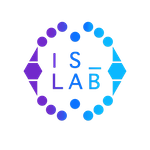P. Katsaros, N. Bassiliades, I. Vlahavas, "The Organon and the logic perspective of computation", World Congress "Aristotle 2400 Years", 23-28 May 2016, Thessaloniki, Greece.
Author(s): P. Katsaros, N. Bassiliades, I. Vlahavas
Appeared In: World Congress "Aristotle 2400 Years", 23-28 May 2016, Thessaloniki, Greece
Keywords: Aristoteles, Logic, Computation
Tags:
Abstract: With the "Prior Analytics", Aristotle introduced a list of inference rules (syllogisms) that concern with the relation of premises to conclusion in arguments. His aim was to determine which kinds of arguments are valid. A premise is a sentence affirming or denying one subject of a predicate. Both subjects and predicates are called terms. Syllogisms enable new propositions to be deduced from those already established and hence allow logic reasoning, with logical consequence being a matter of form (formal reasoning): schemes with dummy letters (variables) are used to stand for terms. A scheme cannot be a syllogism, if there are terms to substitute for the letters that make the premises true and the conclusion false. Aristotle's conception for logic was the dominant form of Western logic with no breakthroughs until the 19th century advances in mathematical logic. These started with George Boole, who found the analogy between propositional operators and the operators of set theory, thus giving an extensional interpretation to propositional logic. A few years later, Gottlob Frege developed a synthesis of the logic of Aristotle with the Stoics' propositional logic. This enabled the representation of relations, whereas Aristotle’s logic was limited to predicates applying to a single subject. Frege's "Begriffsschrift" introduced the first formal logic language with precisely defined syntax rules, which handle all combinations of quantifiers and negation, as well as conjunction, disjunction and conditionals. The notion of computation came to the foreground due to the decision problem (known as "Entscheidungsproblem") that was posed by David Hilbert: is there an effective or mechanical method that can be applied to any proposition to determine whether it is provable in predicate logic? Hilbert's motivation was a new formal deductive system, in which the grammar and the inference rules are explicitly stated in syntactical terms. Kurt Godel quoted that "this deductive system should refer only to the outward structure of the formulas, not their meaning, so that they can be applied by someone who knew nothing about mathematics, or by a machine". Such a deductive system is the Turing Machine that is to date the most general model of computation. In this article, we attempt an epitome of the fundamental principles of the theory of syllogism and their impact to the foundations of modern logic reasoning and in particular the study of computation during the 20th century.
